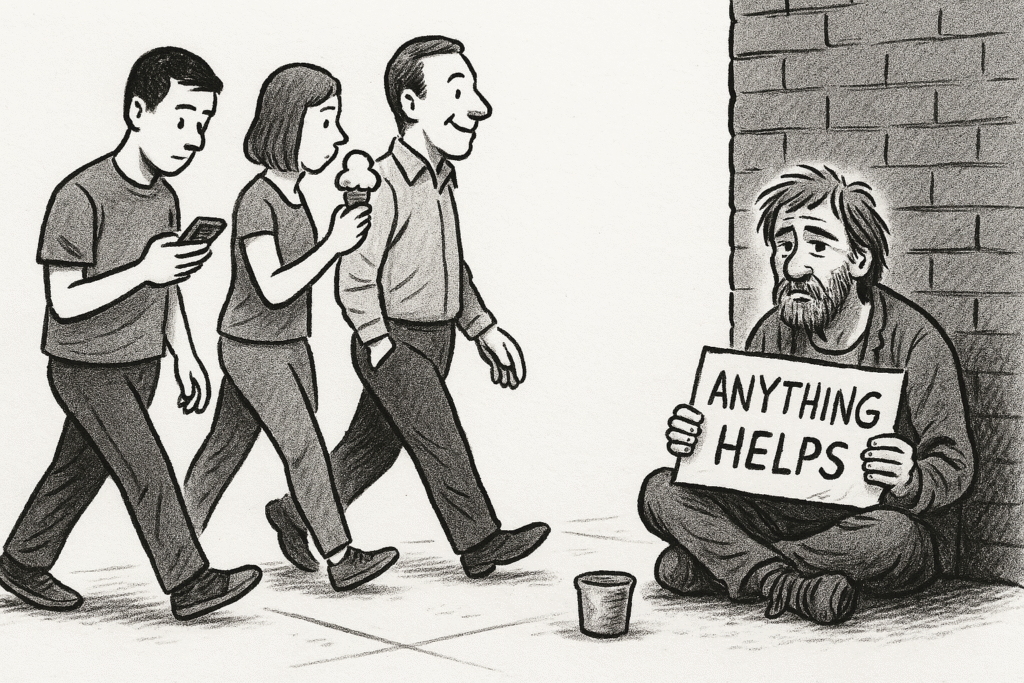There is a tendency, especially in polite analysis, to separate suffering from responsibility. To look at ordinary people facing economic ruin and speak only of tragedy — as if what’s happening to them fell from the sky, disconnected from their choices, their culture, or their silence.
But when it comes to America, that story feels incomplete.
For decades, American life was built not only on inequality abroad, but on something far more corrosive at home: a culture of apathy, cruelty, and indifference to suffering — so long as that suffering happened to someone else. Wars were cheered from living rooms. Sanctions that strangled entire nations were met with smirks or shrugs. Poverty, violence, and collapse — if they stayed outside American borders — were seen not as moral failures, but as background noise.
And at home, the same instincts applied. Millions learned to look away — from homelessness, from crumbling healthcare, from their struggling neighbours — so long as their own lives stayed comfortable. The habit of indifference, once formed, rarely stays selective. It becomes a way of seeing the world.

But systems like this never break quietly. Empires built on debt, extraction, and exceptionalism eventually turn inward. And when the collapse finally reaches the people who once felt untouchable, something revealing happens. Regret arrives — not because suffering itself was ever seen as wrong — but because they didn’t expect to be included.
That is the quiet confession beneath so many American voices today: “I didn’t think it would happen to me.” But what does that really mean? It means it was always fine if it happened to someone else.
And that is why, to many watching from afar, America’s crisis feels less like tragedy and more like consequence. Pain alone does not purify a culture. Victimhood does not erase complicity. Suffering does not reset the moral ledger. A society that built its comfort on the suffering of others — foreign or domestic — cannot claim innocence when that suffering circles back home.
This is not to say every person deserves harm, nor that guilt is evenly shared. But it is to say: this collapse isn’t random. It is a mirror. And what it reflects is uncomfortable.
For a country that spent decades teaching itself to look away, that mirror now shows the lesson it most wanted to avoid: pain does not stay where you put it. The suffering you ignored, minimized, or exported does not disappear. It waits. And eventually, it comes home.
Empathy was optional — until it wasn’t.
Because this is not just an economic crisis. It is not just a political crisis. It is, at its core, a moral reckoning. And for a culture that chose indifference over compassion for generations, collapse isn’t just inevitable.
It feels earned.